What Happens to Your Body When You Eat Cucumbers
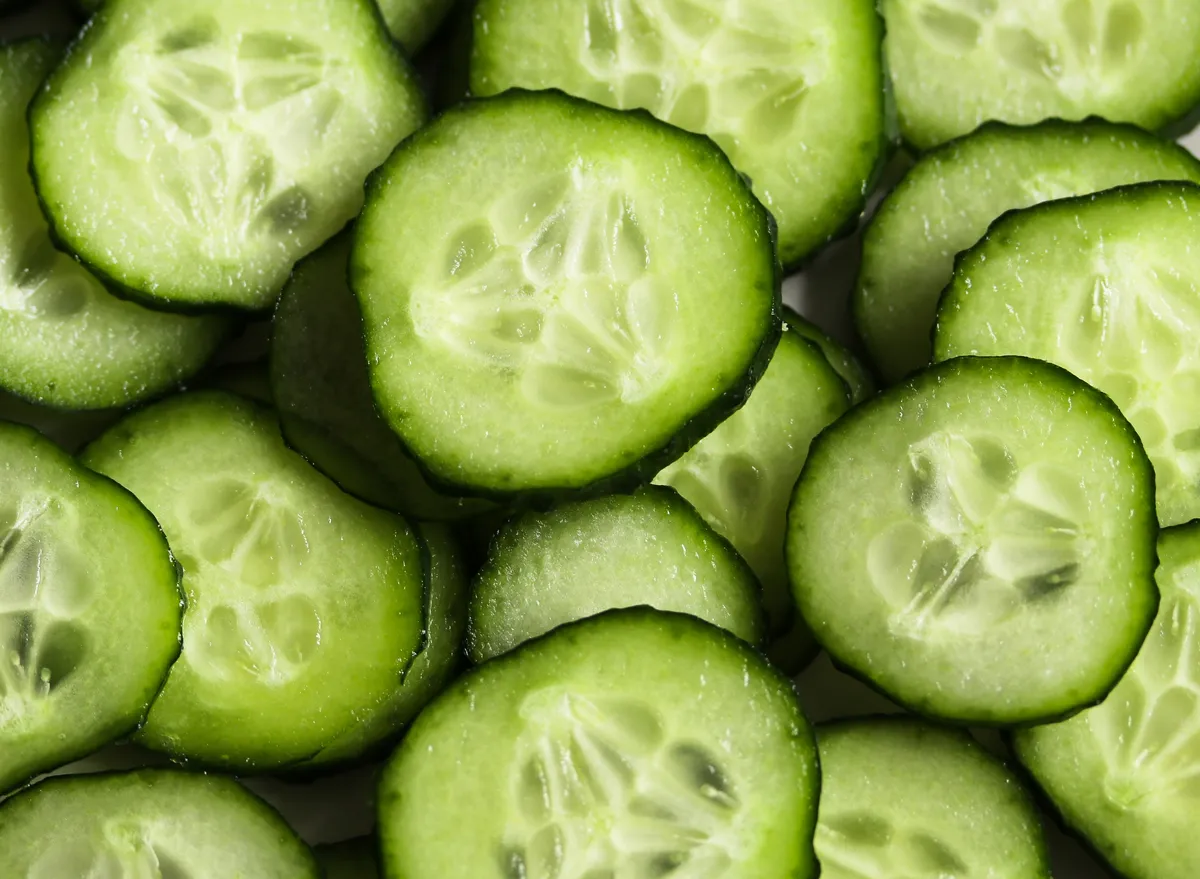
A staple of salads, crudite platters, and as a base for pickles, cucumbers are one of our favorite non-vegetable vegetables. (That’s because, botanically speaking, cucumbers are actually fruits. And even more technically speaking, they’re berries!)
While a fan favorite, cucumbers are often overlooked as far as superfoods go. While some fruits and veggies are teeming with antioxidants, bioactive compounds, and micro and macronutrients abound, cucumbers are, to put it mildly, relatively boring. But that’s not to say that eating them won’t support your health. In fact, you may be surprised to read about some of the completely unexpected side effects of eating this piece of produce. Read on to learn more about what eating cucumbers can do to your body, and for more on how to eat healthy, don’t miss 7 Healthiest Foods to Eat Right Now.
You’ll get hydrated.
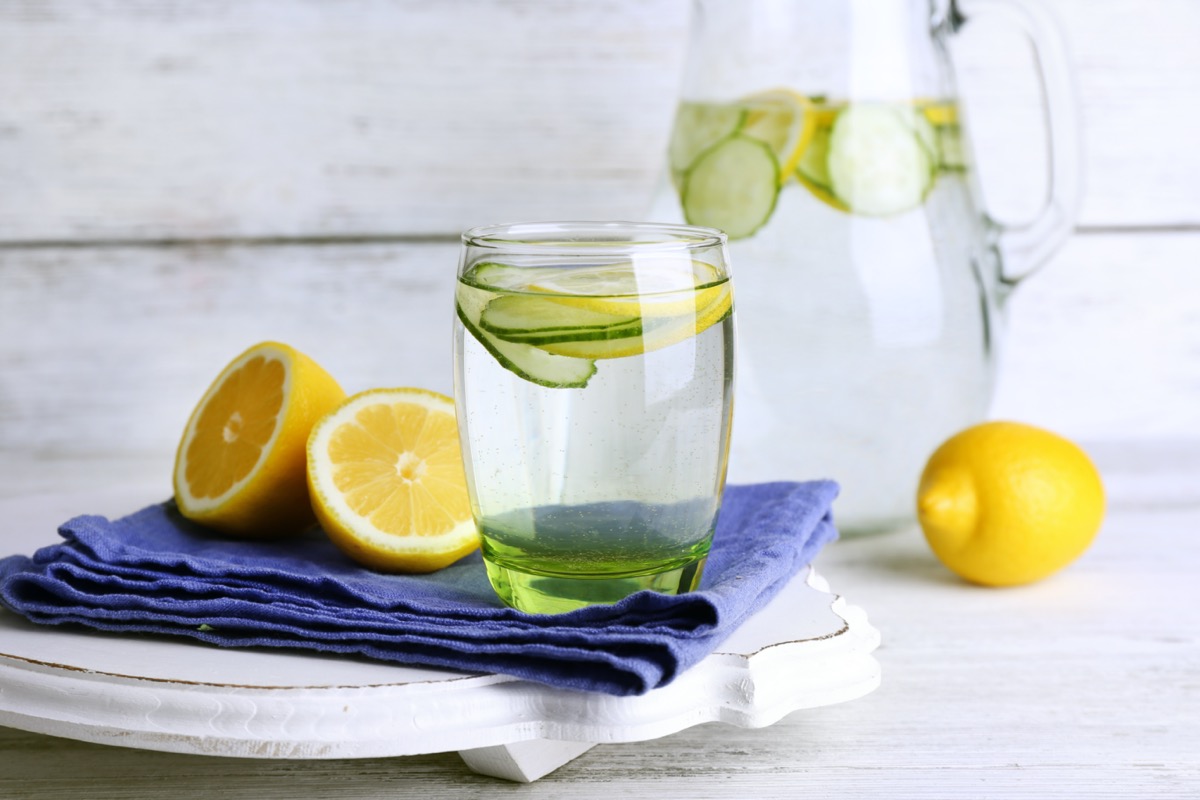
Cucumbers are about 95 percent water—containing 114 grams of water per 120 grams of solid cucumber, according to USDA data. They’re also a small source of two electrolytes, potassium and magnesium, with one cup of cucumbers serving up 4 percent of your daily value of each of the electrolytes. Snack on cucumbers alone to get hydrated or eat them alongside yogurt dip for a cooling, protein-rich bite.
You’ll get a solid dose of vitamin K.
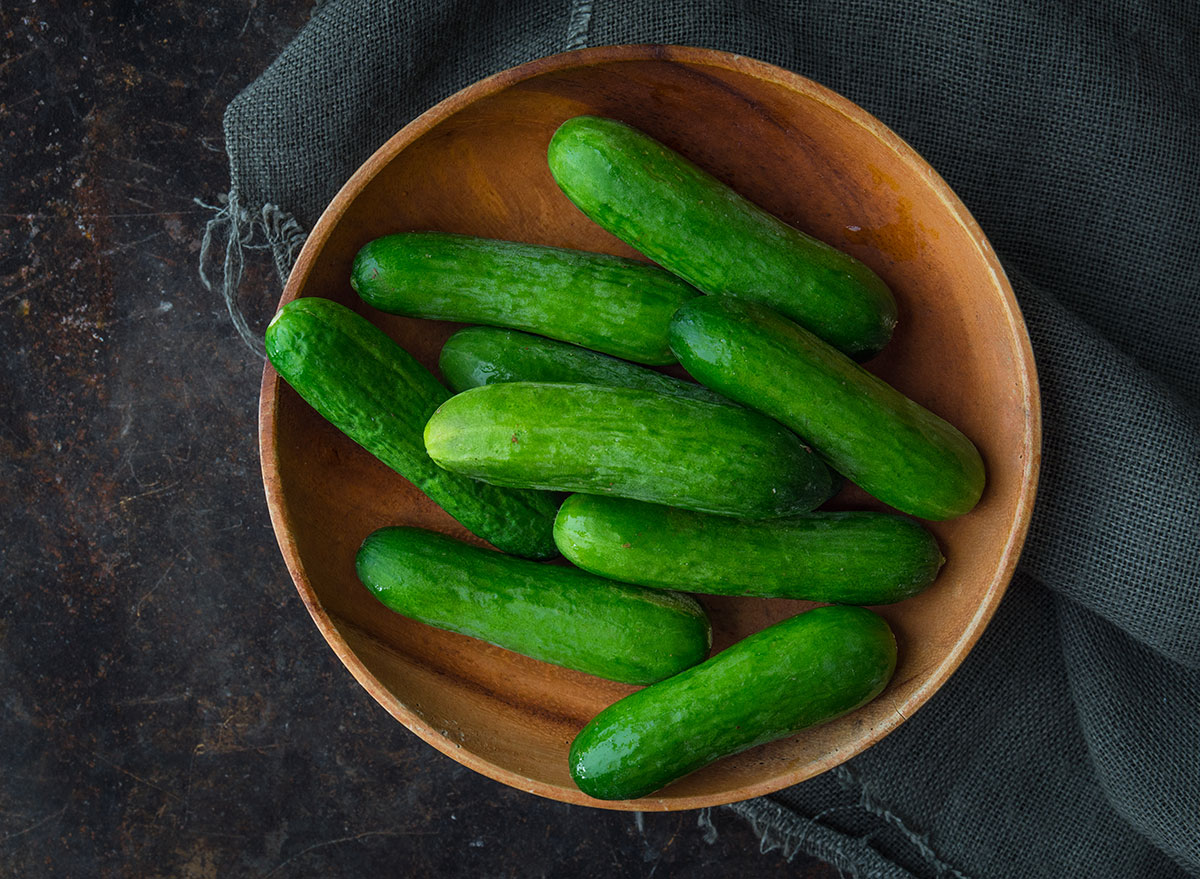
This water-rich veggie is considered to be a “good” source of vitamin K: a fat-soluble vitamin that is key in protein synthesis, blood clotting, and bone growth, according to the National Institutes of Health. One cup of cucumber delivers an impressive 17 percent of the daily value of the nutrient, with nearly 20 micrograms per serving. In addition to cucumbers, other good sources of vitamin K include green leafy vegetables such as spinach, kale, and broccoli.
They may help you lose weight.
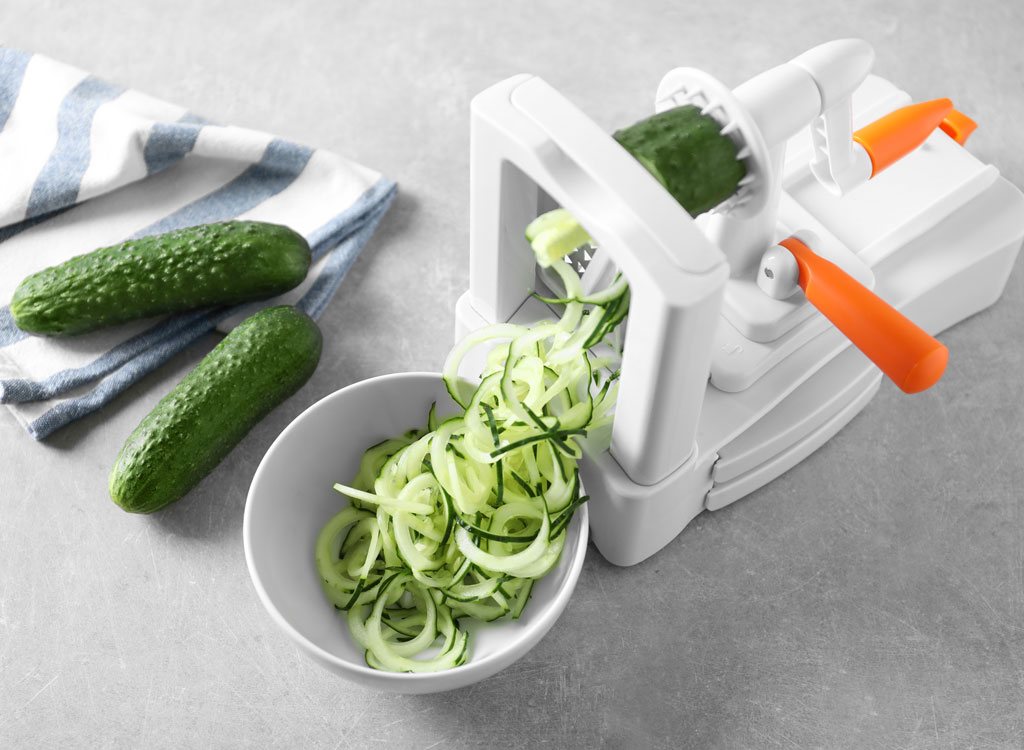
Cucumbers are one of the lowest-calorie vegetables you can eat, with only 18 calories in a cup. With such a low calorie count and high water content, you can eat a significant amount of cucumber while eating few calories but still filling up, which is helpful for maintaining your weight. That’s why cucumbers are a favorite in many of our healthy snack ideas.
You may reduce your risk of prostate cancer.
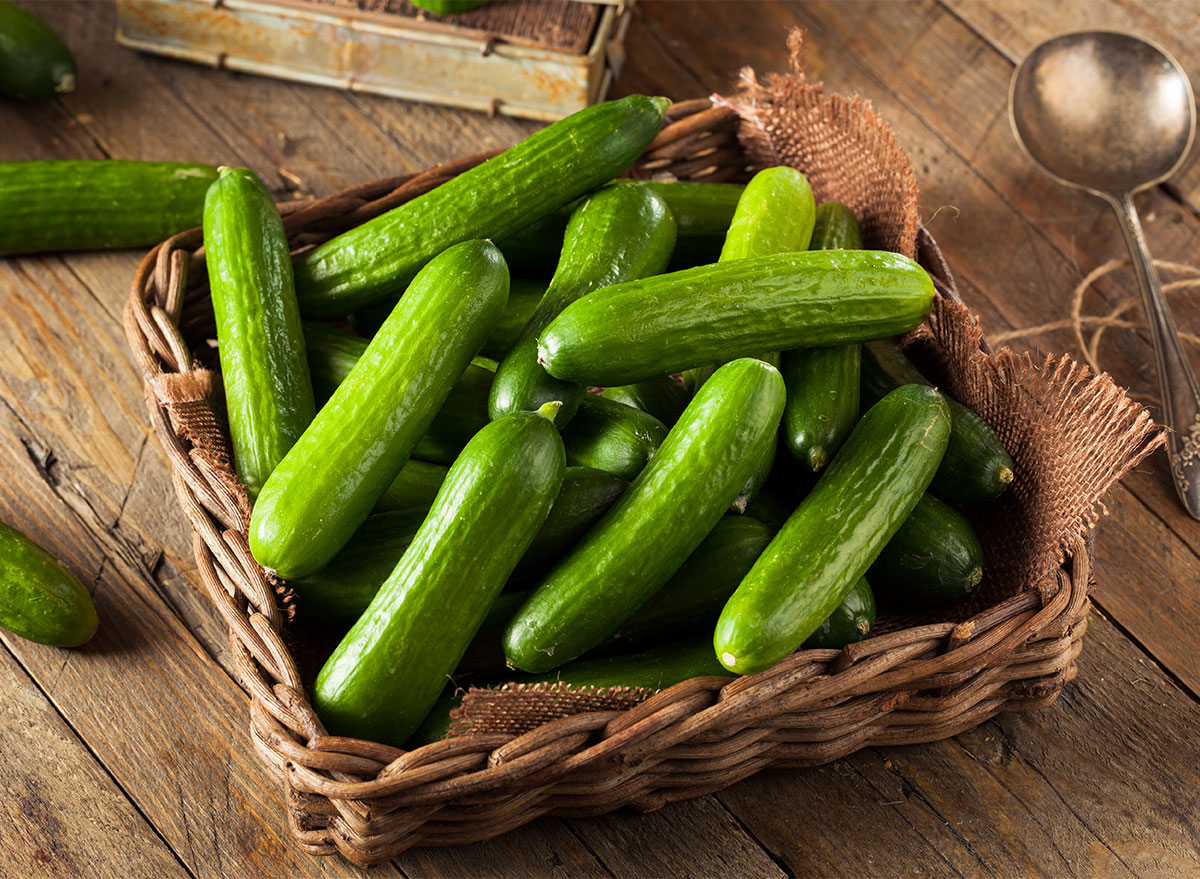
Cucumbers are a good source of a dietary flavonoid called fisetin, which initial research has shown to have strong anti-inflammatory, anti-oxidant, neuroprotective, and cardioprotective properties. Though more research is needed, an Antioxidants & Redox Signaling review found that fisetin has anticancer mechanisms and may help slow the progression of prostate cancer.
You’ll support eye health.
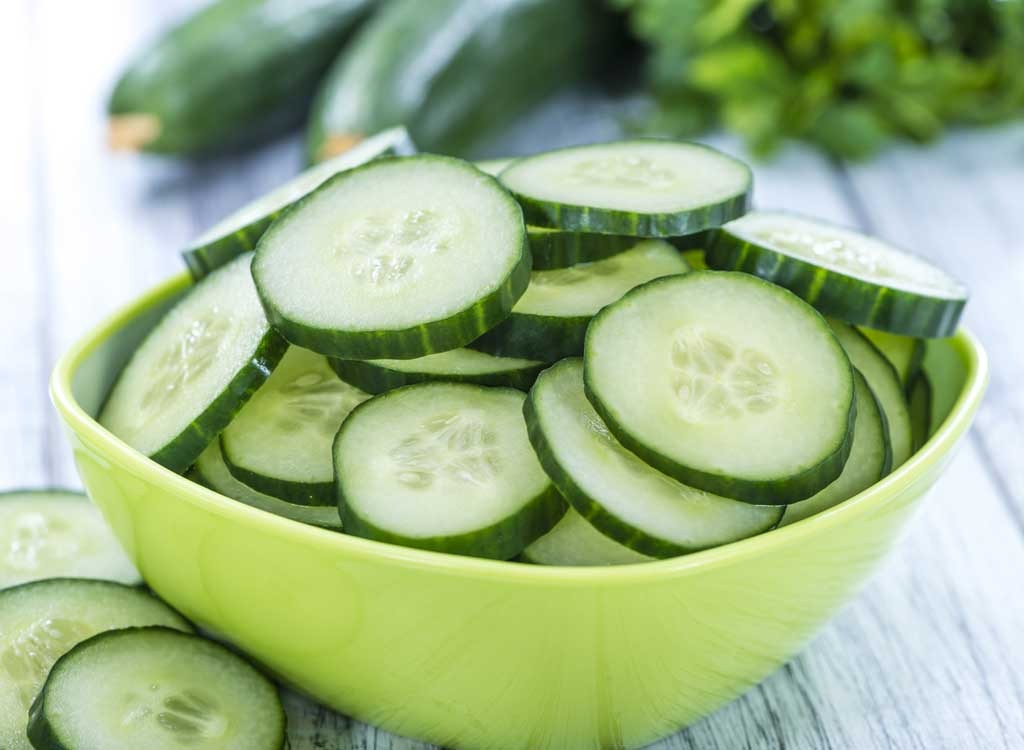
Antioxidant, bioactive carotenoids lutein and zeaxanthin are plant compounds with eye health-promoting qualities. Lutein and zeaxanthin are the only carotenoids that accumulate in the eye and they play major roles in the visual system, according to a review published in the European Journal of Nutrition. Consuming enough of these nutrients is essential for eye health and reduces the risk of age-related macular degeneration (AMD). There is no current recommended intake of these nutrients, but the average American adult consumes around 1 to 2 milligrams of lutein per day. The best sources of these nutrients are leafy greens, but cucumbers also serve as a source. A cucumber (with the peel!) contains 70 micrograms of the two carotenoids, or about 7 percent of your daily intake.
For more fun with green veggies, check out What Happens To Your Body When You Eat Leafy Greens.








